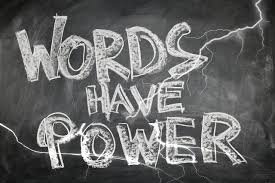
A rose by any other name does not smell as sweet. Fact. Our perceptions are affected by our mental filters, plus the connotations that build around words over time. One of the things I studiously do is avoid using words with ageist connotations when writing about older people. I’m not sure I even approve of segregating adults by age at all. Why silo adults in different categories?
But yesterday I was almost lost for words. (Almost.) In the post came a copy of the Christian evangelical magazine that I’ve been contributing to for the past two years. My little columns covered issues of old age and news items, such as the 71 year old Japanese man who killed himself by immolation because he couldn’t manage on his pension, and the Think Tank that predicted the demise of care homes by 2021.
I thought I’d end my run on a positive note and sent in an article on how churches’ mature members are involved in all sorts of activities and helping their churches grow. I mentioned the people in their 80s who are reaching older people in their community, and looking out for others so they don’t fall off the radar. (I didn’t mention the 95 year old who has organised Brain and Soul Boosting for Seniors sessions in a care home to bring some Gospel thoughts to non-Christians living there. I could go on …)
The title of my final little piece was: ‘Mature Members Growing Their Churches.’ But the title was altered and published to read – ‘Oldies Growing Churches’ with a depressing little picture of a walking stick and feet on a lane in the rain.
The editor said it was because of shortage of space, and that not everyone objected to the word ‘oldies’. If lack of space, why not use ‘Seniors’? And where’s the evidence that ‘not everyone objects’ to the word?
As someone on my Facebook page said, this editor would never expect to get away with using flippant words about an ethnic group or others. ‘Oldies’ is derogatory, said another. ‘It’s demeaning’, said another, who is an experienced counsellor used to seeing the effect of language on people, ‘It’s lumping people together under a very disrespectful umbrella.’
Words have very powerful effects on people. Research shows that even words in songs (‘I hope I die before I’m old’) can make older people feel bad about themselves. We’re drip fed ageist wording every day, in one form or another. But the truly worrying thing is that people who use them seem to have no idea of the hinterland, or how offensive they are. The psalmist had it right when he said, ‘May the words of my mouth and the meditation of my heart be pleasing to you, O Lord, my rock and my redeemer.. Psalm 19:14.














